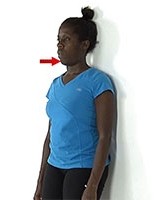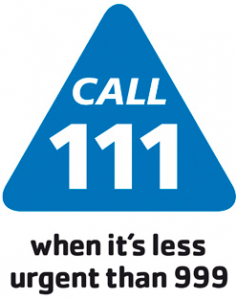Regular activity and movement will help the recovery process, and will help to stop your muscles getting weak and your neck getting stiff. Here are some ways you can help your neck problem:
Keep moving. Staying active and keeping fit will help your body’s ability to cope with pain and carry out daily physical tasks. If you find a particular activity aggravates your neck pain, try to spend less time doing it or do it less often for a while. Over time, you will be able to build up the amount you can do.
Exercises are important for recovery and managing your neck problem, so try to do some regular neck exercises. If the pain seems worse at first with certain exercises, reduce how many or how often you do the exercises for a short period. The body will adapt to them, and you will be able to build from there. General cardiovascular exercise, like walking, is also very important. The research tells us that improving the strength of your neck and shoulders can also help reduce mechanical neck pain so don’t be afraid to do exercises to get a bit stronger!
Changing your position regularly will help you feel more comfortable: Try to take regular breaks and vary tasks where possible. Even though we have been told for years about the ‘right’ posture, the research tells us that there is no ‘right’ posture and certain postures are not a cause of neck pain. However, moving regularly and changing positions is very important.
Sleep, diet and general health. Look after yourself! Sleep is an essential part of feeling well and happy. If we are tired the pain can feel much worse and harder to manage Eating healthy food can also help us to recover and reduce the likelihood of developing other general health problems in the long term (such as diabetes and heart/lung conditions) that can make future recovery from episodes of pain much harder.
Stay positive. Your attitudes and beliefs about your pain play a very important role in helping you manage it successfully. Remember, pain is a normal part of healing and does not mean that damage is being caused.
Look after your mental health. It is important to be aware that pain can often have an impact on your mood. Pain can also be made worse by additional stress, low mood and anxiety. If you are feeling low, anxious or stressed you may find some useful information in our section on MSK Health and Wellbeing. Otherwise mention it to your GP or healthcare professional who will be able to advise you.
What about pain relief?
Ask your GP or pharmacist about using pain relieving medications while the symptoms are settling to help you stay active.
Using gentle heat or ice can also help to reduce pain levels
Try relaxation techniques if you feel stressed or anxious
A supportive pillow may help provide comfort at night. Using a rolled towel for further support in the hollow of the neck may also help. You may find the Good sleep guide helpful.
Do I need to see a therapist?
Often neck pain resolves on its own. Physiotherapists can help by giving advice and coaching so that you know how to help your recovery. Advice will be focused on your specific problems and increasing general activity. Specific exercises can improve strength and flexibility.


 Look over shoulder
Look over shoulder Shoulder roll
Shoulder roll Chin nod
Chin nod Chin tuck
Chin tuck

